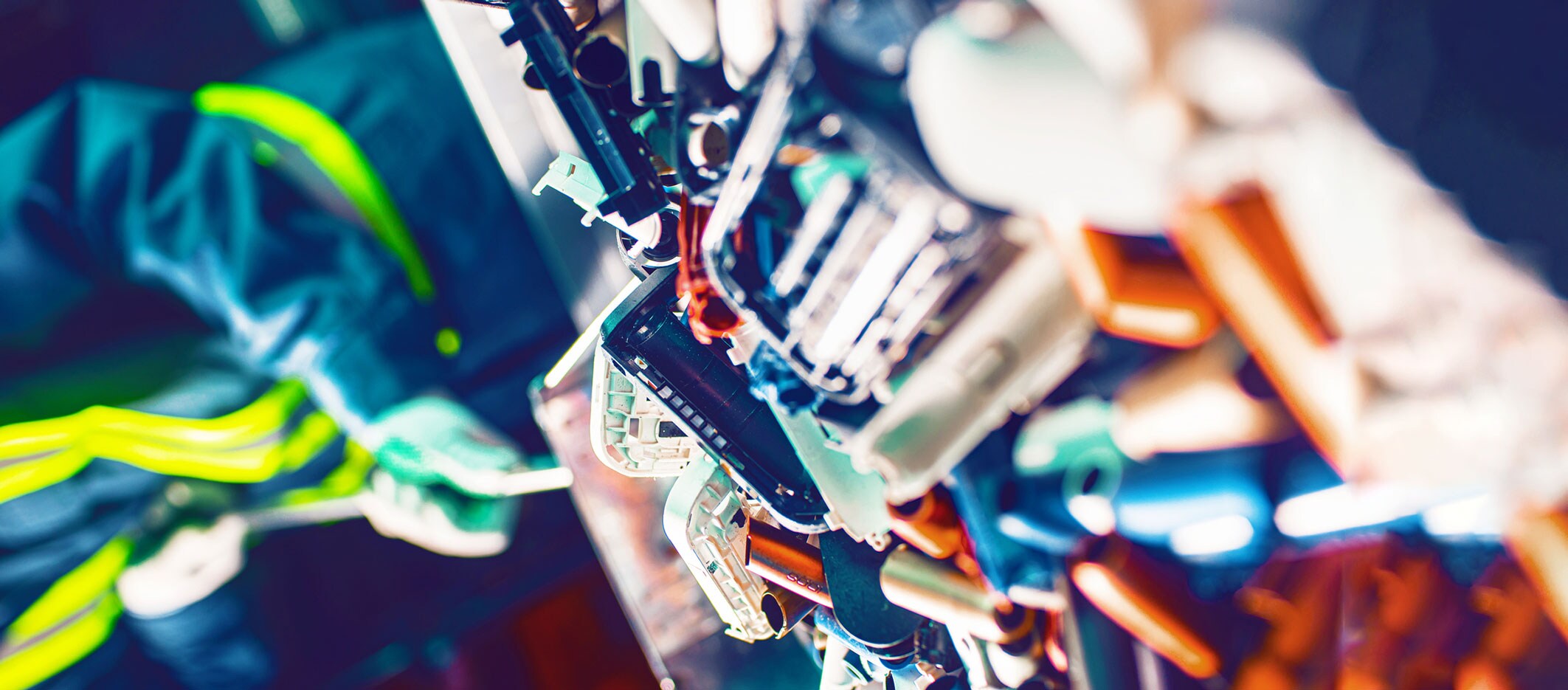Embedding eco-design principles into our smoke-free products is the right thing to do for our business, our consumers, and our planet.
It’s important that companies constantly innovate to drive efforts to combat the multiple challenges society faces—and this is something we take seriously across our company.
Society’s imperative transition to a sustainable economy requires continued innovation in how we design products at PMI—one which allows us to preempt the upstream issues before waste is even generated.
From “make-take-dispose” to “make-use-return”
Perpetuating an endlessly linear “make-take-dispose” model is no longer a viable business strategy. Instead, exploring and seizing long-term opportunities toward regenerative value creation is key.
This is enabled by a mindset shift to product circularity—a “make-use-return” system, where waste and pollution is designed out of products, devices and materials are kept in use, and natural systems are regenerated.
It enables us to drive innovation and deliver better customer value.
So, it’s paramount that each generation of our smoke-free products incorporates improvements in quality, ease of use, durability, and performance.
That’s where eco-design comes in—an approach that considers the environmental impacts at all stages of the product development process. Its aim? To deliver products that have minimal environmental impact throughout their life cycle.
This is critical if we’re to address some of the main global challenges we are facing, such as climate change, biodiversity loss, waste, and pollution.
Reducing the environmental impact of our smoke-free products
At PMI, our overarching ambition is to achieve a smoke-free future for the millions of adults who would otherwise continue to smoke.
While working toward this ambition, we must also improve the sustainability of our smoke-free products. They generally have a higher carbon footprint than combustible cigarettes—primarily because they contain an electronic device, which consists of new components and requires electricity to charge.
This is something we are looking to address, continually seeking ways to reduce the carbon footprint of our smoke-free products through improved manufacturing processes, extending the usable life of our electronic devices, and implementing smart materials selection and sustainable design practices.
It’s not just the right thing to do for the environment, but for consumers, too. Investing in eco-design and circularity gives them access to products that are energy efficient, more robust, and long-lasting. And, for our company, it spurs the innovation of new smoke-free products and reduces operating costs—ultimately to the further benefit of our consumers.
To help lead us forward, we have designed a set of guidelines to put sustainability considerations front and center in the early stages of development, and we will start applying them as part of our roadmap toward eco-design certification.
To drive performance and raise product standards, we’re aiming for all of PMI’s smoke-free alternatives launched by the end of 2025 to be eco-design certified.
Quality + reliability = longevity
At PMI, we want to make smoke-free electronic devices that last. Achieving this starts with high standards of quality and reliability. From there, we provide guidance on proper care, steps to refresh, repair, and refurbish devices, and recycling.
In short, we are beginning our evolution from a collection-for-recycling model to a collection-for-recovery one.
To expand our refresh and repair capabilities, we are implementing this product triage criteria, which will strengthen over time:
- Collection and triage of devices, distinguishing between what can be recycled and what can be refreshed or repaired.
- Ensuring our refresh and repair capabilities meet robust quality requirements.
- Remarketing of products.
To manage the end-of-life of our electronic devices, we are also beginning the rollout of our centralized CIRCLE hubs, which inspect, process, and separate materials for recycling.
We continue to grow the capacity of these hubs, implementing repair and refresh capabilities, and widening their coverage.
In addition to our responsible waste disposal guidelines, adult users of PMI’s disposable e-vapor product—which is designed to be a single-use device that cannot be refilled—are urged to return it via recycling programs.
Following use, the product is cleaned and separated by material type, and then recycled into components that manufacturers can use to make new products.
We are also seeking to minimize the environmental impact of our smoke-free consumables, particularly heated tobacco units. Our measures include introducing take-back programs, reducing post-consumer waste through design, exploring low-carbon, recyclable, and biodegradable alternatives to the materials currently used, and understanding and tackling littering behaviors.
Working toward a world without cigarettes
Our journey toward a smoke-free future is accelerating year on year.
However, this isn’t just about moving millions of adult smokers away from cigarettes permanently—it’s also about doing it sustainably and being on a path to reducing negative environmental and social impacts.
Quick wins will get us nowhere. We need to adopt life-cycle thinking to truly deliver a better, sustainable future not just for adult smokers—but for the environment in which those smoke-free products are used.




